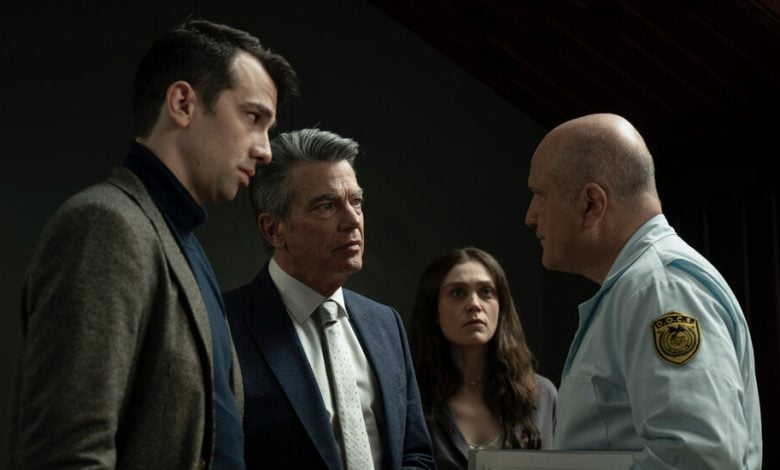‘Humane’ Review: An Ethical Crisis and a Dinner Party

“Humane” is a thought experiment sprung to bloody life, a cross between the trolley problem and dystopian extinction nightmares. Set in the very near future, it tries to tackle a cascade of ethical questions. Who counts as valuable? What does it mean to be good? If humans wreck the earth, what will we do to survive? Do we even deserve it?
Those are gargantuan questions, enough to power several graduate-level philosophy courses. But “Humane” wraps them in admirably small-scale trappings: a family drama with immensely high stakes. Just after widespread ecological collapse, every country on earth has shut its borders and has committed to reducing its population within one year.
In Canada, the target reduction is 20 percent, and to coax people into joining the effort, the government’s Department of Citizen Strategy has come up with language as euphemistic as its name. People who agree to be euthanized are “enlisting” in the “war.” Posters declare that “Enlistment = Opportunity,” because the families of those who enlist receive a substantial payout, enabling higher education or homeownership.
The volunteers tend to be older people, but they’re not the only ones being euthanized. It doesn’t take much to realize who else might be willing: prison inmates facing long sentences, terminally ill people, financially disadvantaged parents, undocumented immigrants whose families are promised a fast track to citizenship. But people haven’t been enlisting fast enough to reach the threshold. On TV news, some are beginning to discuss “conscription.”
“Humane,” directed by Caitlin Cronenberg (a daughter of the celebrated horror auteur David Cronenberg) in her feature debut, builds this world at a satisfyingly rapid speed, raising stakes so quickly that you’re left breathless as the implications sink in. (That also means some of the logical leaps — like how you’d get the whole world to agree to these measures — fade into the background, and that’s fine.)
